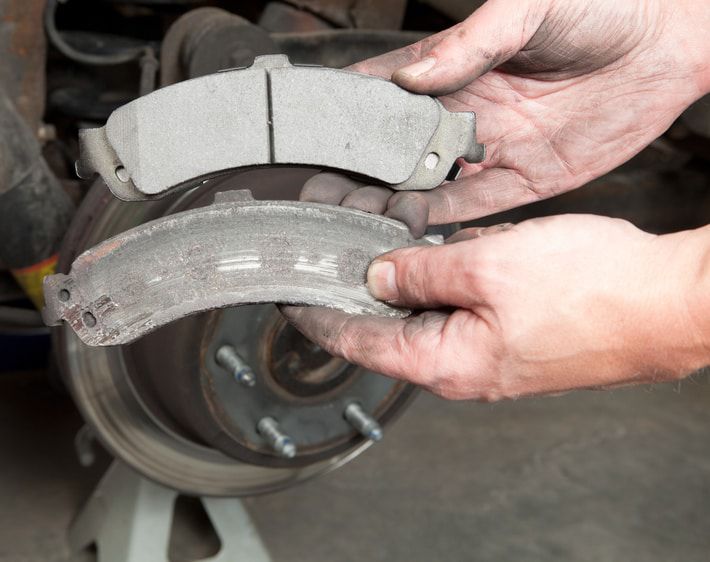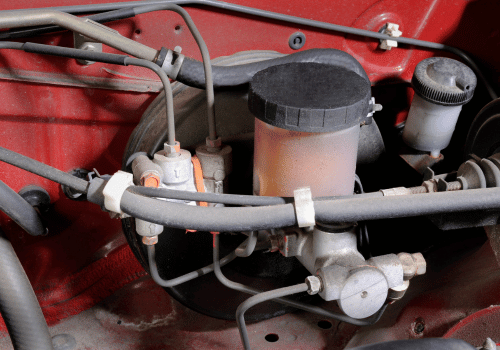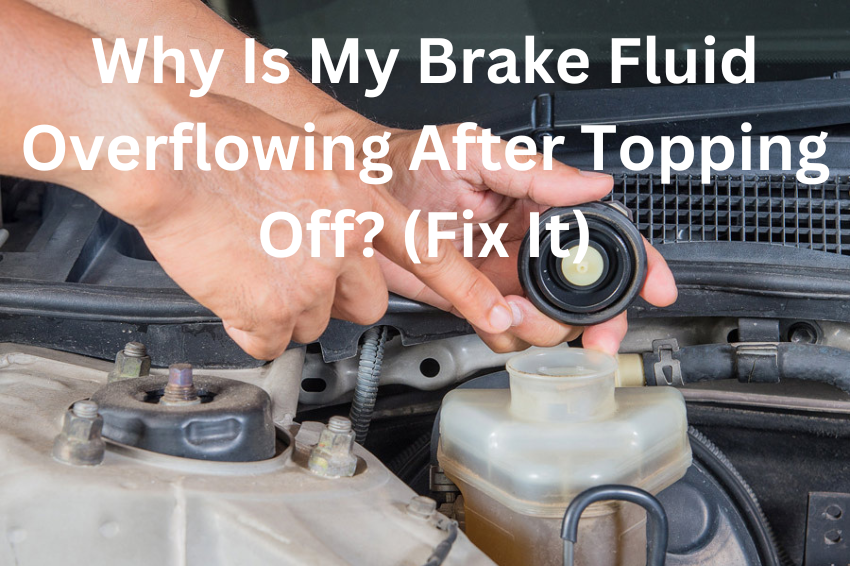Your car’s brakes are essential for safety, and If you’ve discovered an overflowing brake fluid reservoir, it’s important to understand why.
This guide, written by automotive experts, will explain the causes of overflow and help you determine if you can fix it yourself or need a mechanic’s attention.
Why Is My Brake Fluid Overflowing After Topping Off And How To Fix It (Depending On The Cause)
A full or overflowing brake fluid reservoir can be alarming, but the solution depends on the cause.
Let’s examine how to address overflow caused by some common reasons, keeping your safety and car’s health in mind.
Expert Tip: If you’re unsure about fixing the overflow yourself or experiencing any warning signs related to your brakes, prioritize safety and consult a trusted mechanic.
1. Worn Brake Pads:

Worn brake pads are a frequent reason for overflow after topping off fluid.
These pads wear down over time, causing the pistons in your brake calipers to extend further to maintain pressure.
This internal movement uses up fluid within the system, lowering the level in the reservoir.
Topping off without replacing the worn pads seems like a quick fix, but it adds fluid to an already full system, leading to overflow.
Safety First: Brakes are critical safety components. Incorrectly installed or worn brake pads can greatly reduce your braking ability and put you at risk. In this case, it’s best to consider safety and consult a qualified mechanic for brake pad replacement and a professional brake system inspection. They can ensure your brakes are functioning optimally and recommend any other necessary services.
2. Faulty Master Cylinder

The master cylinder is the heart of your hydraulic brake system.
It converts the pressure from your foot on the pedal into hydraulic pressure for the brake fluid.
A malfunctioning master cylinder, like a faulty pump, can develop an internal leak.
This leak allows fluid to bypass its intended path and return to the reservoir, causing overflow even if the system isn’t full.
However, a faulty master cylinder can be a serious safety concern.
Warning Signs: While a visual inspection of the master cylinder for leaks is possible, some malfunctions can be internal.
Here are some signs that could indicate a failing master cylinder:
- Spongy Brake Pedal: If your brake pedal feels soft or mushy when you press it, it may not be creating enough pressure to slow down the car effectively.
- Increased Pedal Travel: Does it feel like you need to press the brake pedal much further down than usual to slow down the car? This could be a sign of reduced pressure in the brake system.
- Uneven Braking: If your car pulls to one side when you brake, it could indicate a problem with the master cylinder or other components in the brake system.
If you experience any of these warning signs, don’t hesitate to seek help from a qualified mechanic immediately.
There are no safe or effective DIY fixes for a faulty master cylinder.
A mechanic can diagnose the issue, replace the master cylinder if necessary, and ensure your brakes are functioning properly.
3. Overfilling The Reservoir

The brake fluid reservoir has a designated “max fill” line for a reason.
It’s like a gas tank, fill it too much, and you’ll create a mess.
Overfilling traps air bubbles in the system.
These air bubbles are compressible, meaning they can squeeze under pressure, reducing the effectiveness of your brakes.
When the brakes heat up during use, the trapped air expands and pushes fluid out, causing overflow.
If you suspect you’ve overfilled the reservoir, you can address it yourself.
Here’s a simple DIY fix:
- Gather your tools: You’ll need a turkey baster or similar tool and clean rags.
- Carefully remove excess fluid: Use the turkey baster to slowly remove brake fluid from the reservoir until the level reaches the “max fill” line.
Avoid letting any fluid come into contact with your car’s paint, as it can damage the finish. Wipe up any spills with the rags immediately.
Please Note: While this DIY fix might address the overflow caused by overfilling, it’s still recommended to have your brakes checked by a mechanic to ensure they are functioning properly.
Especially if you’re unsure about how much fluid you removed or why the reservoir was overfilled in the first place.
When it comes to your brakes, prioritize safety.
If you’re unsure about the cause of the overflow, notice any warning signs related to your brakes, or are uncomfortable performing any DIY steps, consult a qualified mechanic.
They can diagnose the issue, address the cause of the overflow, and ensure your car’s braking system is functioning optimally, keeping you safe on the road.
Reference Sources:
